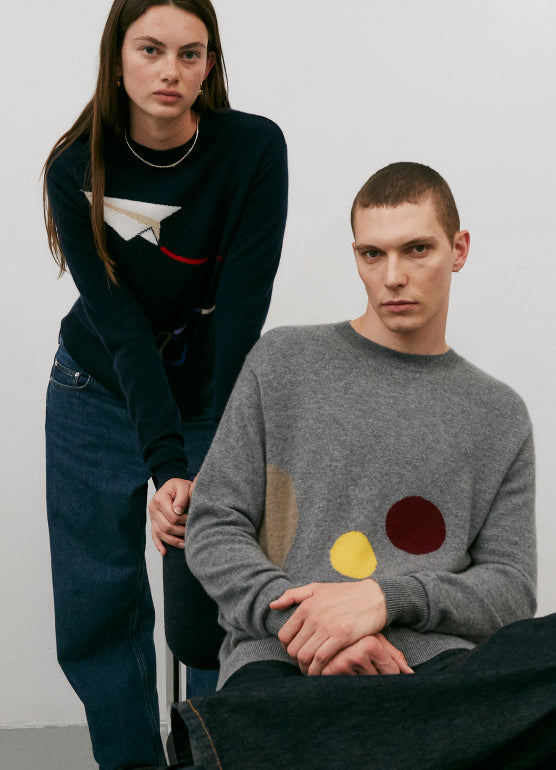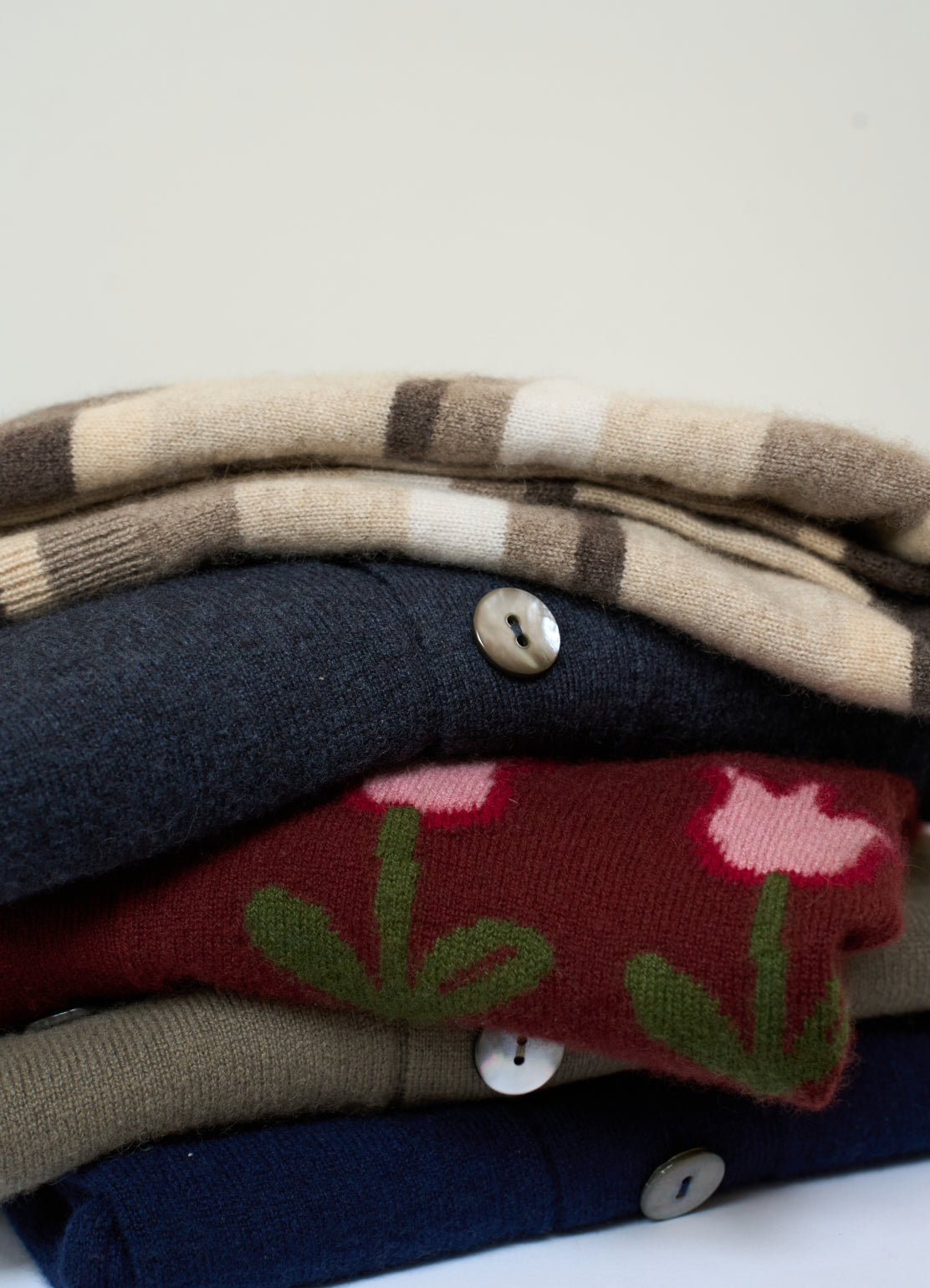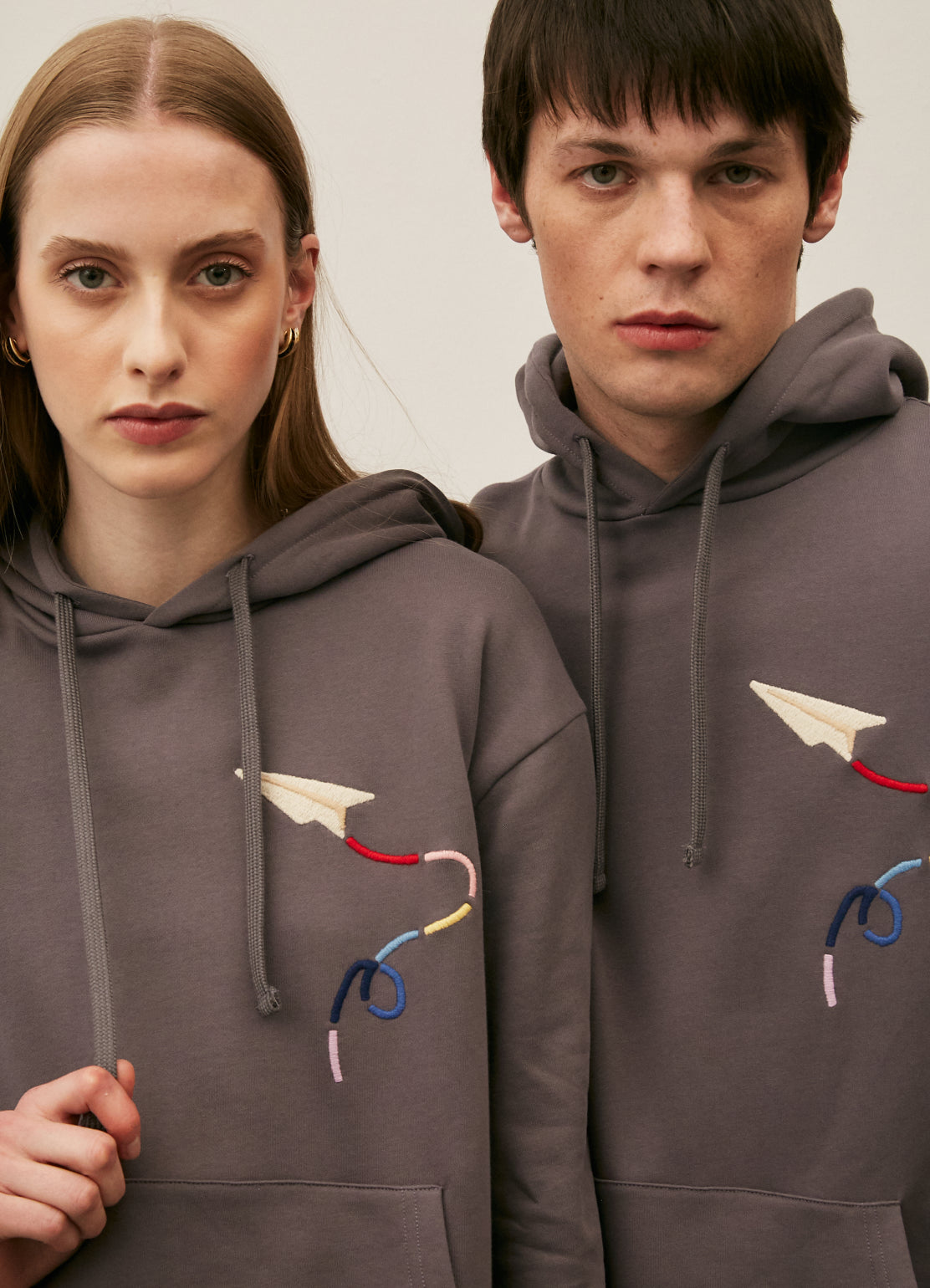Booker Mitchell
Booker started building speakers at a young age and recently started his own speaker company called Bridge Street Sounds.
Edouard Leret, Co-founder of LERET LERET visited Booker in his Brooklyn studio where he interviewed him. We photographed Booker in limited-edition No. 23 & No. 26.
|
|
LERET LERET: My first question for you is: do you have any early memories from when you realized you were into sound?
BOOKER MITCHELL: Honestly, music has always been such an integral part of my life. I remember as a little kid downloading whole discographies on Limewire, trying to pack as much music into like an iPod Classic or something. That’s probably [one of] my first memories of collecting music.
LL: Can you tell me how you got interested in building speakers?
BM: I was probably around 12 when I had started collecting records and eventually DJing a bit. I had a neighbor who built speakers and thought to have me over a couple times to listen. I had a concern for sound, because I was into collecting vinyl, and a growing interest in the listening experience. It was pretty inspirational. Then from there, growing older and going to clubs that really respected sound and had impressive systems as well.
LL: What materials do you work with and where do you find them? Do you recycle any parts from old speakers?
BM: The parts that I use are mainly vintage, either reclaimed or refurbished. It's a process of mixing and matching, making sure all the components are in agreement, and then building the crossovers for them. I also grew up woodworking - the wood I source just comes from lumber yards, it’s the parts that really make them special.
 |
LL: Do you gather any inspiration from a particular speaker design or functionality? Or culture?
BM: Growing up, the early New York scenes like Paradise Garage and Richard Long who did a lot of the early club sound systems [were really inspirational to me]. Definitely dub culture and soundsystem culture from Jamaica and the UK, as well as Japanese sound culture. Especially when it comes to their approach to space and private listening. And [speaker] models - I mean, I look to the old stuff. There are certain companies that I follow, source, and go after.
LL: Are your speakers built for a particular environment? Outdoor v. indoor?
BM: Mostly indoor, but every environment is different. Having a good sound system is as much dependent on the space as it is on the components themselves. A room is the first thing that’s going to influence the sound, so if you don’t take the room into account, your sound system will never be great. That’s the starting point - looking at the room and [figuring out] what would be most compatible with that.
LL: How do you test the product both while creating and after completion?
BM: I don’t test them [speakers] very much while I’m working on them, which makes it exciting when everything gets plugged in and I get to listen for the first time. I’ll test them in my workshop - on my roof and in an open space downstairs. I really [only test the speakers] once they are completed. And [when I test], I listen to a bunch of different types of music that run the spectrum of frequencies.
LL: That was my next question. What music do you normally listen to for speaker tests?
BM: A bit of everything. The first track I always like to play is “Good Morning Little School Girl” by Muddy Waters. And then I go to Jazz, maybe Reggae, some other stuff, and then Dance music. The listening process has a lot more to do with the recording process of the tracks than the music itself. I like to listen to big studios with signature sounds, like ECM or MCA. The point is to listen to an array of sounds, different eras used different technologies and processes, as well as live v. studio, mono v. stereo, the timbre, etc.
 |
LL: Now that we got into music - what records did you grow up listening to?
BM: Until I had a collection of my own I would just go through my parent’s records. So, [I would listen to] a lot of funk and soul and 80s stuff like Prince and Bowie, Grace Jones, all that stuff.
LL: Can you remember the first record you bought?
BM: Yeah, actually: “Hot Pants” by James Brown at Academy Records right over there - and the record was so scratched up it was almost unplayable.
LL: What about the last one you bought?
BM: I don’t know, I just got back from London a couple weeks ago, so probably some drum and bass stuff.
LL: Is there a routine to looking for records? Or is it more of an in the moment experience for you?
BM: Sometimes yes, sometimes no. Let’s say I’m DJing a party that weekend or that night - sometimes I’ll get something that accommodates the style of the party a bit more. I go to different shops depending on what I’m looking for. When I go abroad, sometimes the whole trip will be dictated by trying to find music that only exists elsewhere, and that I can’t find at home. I don’t really like buying records online. |
 |
LL: Do you have a favorite record store In New York? Of all time?
BM: Definitely a couple. I mean A1 is a classic - it’s one of the last establishments left in Manhattan. There are waves of little shops popping up here and there, but A1 has been through it all.
LL: How has your listening to music evolved through the years?
BM: Throughout the course of my life, everything has become more intentional; I’m digging deeper music-wise, and seeing where that leads me.
LL: Wax v. Digital?
BM: They’re two different experiences - they have different qualities of sound and they offer different things. When it comes to spinning, and collecting records, I think it’s just a very different style of DJing. You’re more [of a] selector, you did your homework, you put in the time, you found the record. It’s just all a bit more intentional; you’re not just mass downloading somebody else’s playlist. And I have respect for people who DJ digitally, I get the appeal and everything, it’s just that with that medium, it’s a lot easier for someone to bullshit.
LL: Analog v. Digital?
BM: Same thing that I touched on before: they do different things. Apples and oranges. They both have their pros and cons.
LL: Can you recall an LP you didn’t necessarily like, but then got into it?
BM: What happens a lot is that I’ll listen to one track off an album, I’ll think that’s the only heater on the album, and then I’ll get sick of it. I’ll go back and listen through the whole album [later] and be like oh there’s all these ones. An album is a complete work and there’s always going to be other songs that touch on the same sentiments and energies of a song you already liked on the album.
LL: What are you listening to now?
BM: I feel like everything I listen to is seasonal. Fall into winter I listen to a lot of jazz or darker electronic music. I’m listening to a lot of reggae right now too. Reggae is kind of dark to me. It never made sense to me that it has this image tagged onto it of being “sunshine happy” shit but it’s not; it’s painful music.
LL: I’ve seen you spin a few times, and I’m always moving when ur the selektah. What do you look out for when you’re reading the crowd?
BM: I try to play a bunch of different tracks early on to feel people out. I always bring way more stuff than I need to - I bring a ton of records, I’m always equipped to do five different sets. It’s also not always about catering to the crowd; sometimes I’ll be in a mood and the records that I have are just what I feel like playing [on a given] day. I’ll cater to you a bit, but I wouldn’t play something if it wasn’t interesting to me.
LL: How do you adapt to different settings? Big or small clubs, outdoors?
BM: A party will always be dependent on the environment and the context of the world in which it exists, so all those things are relevant. It’s like setting a scene. I remember DJing a party right after Trump won, and the feeling was like this is not the time or whatever. I didn’t know how it was going to go, but it ended up that people [needed] to release and dance; because it is therapeutic. It was one of my favorite parties I’ve ever done.
LL: How different is what you listen to at home v. what you play at a party?
BM: I get too excited about music. If I find a good track I’m like I want to play this at a party.
 |
LL: Any gigs coming up soon?
BM: I’ve really been focusing on my speakers right now, but there will be a couple parties coming soon, maybe a Brazilian drum and bass party towards the end of the month in Fort Greene.
LL: Do you have any current projects you’d like to share with us?
BM: It’s just been personal work, I’m trying to distribute myself between all my interests. I just started the company Bridge Street Sound, and [right now,] I’m just finding time for my personal work amidst that.



